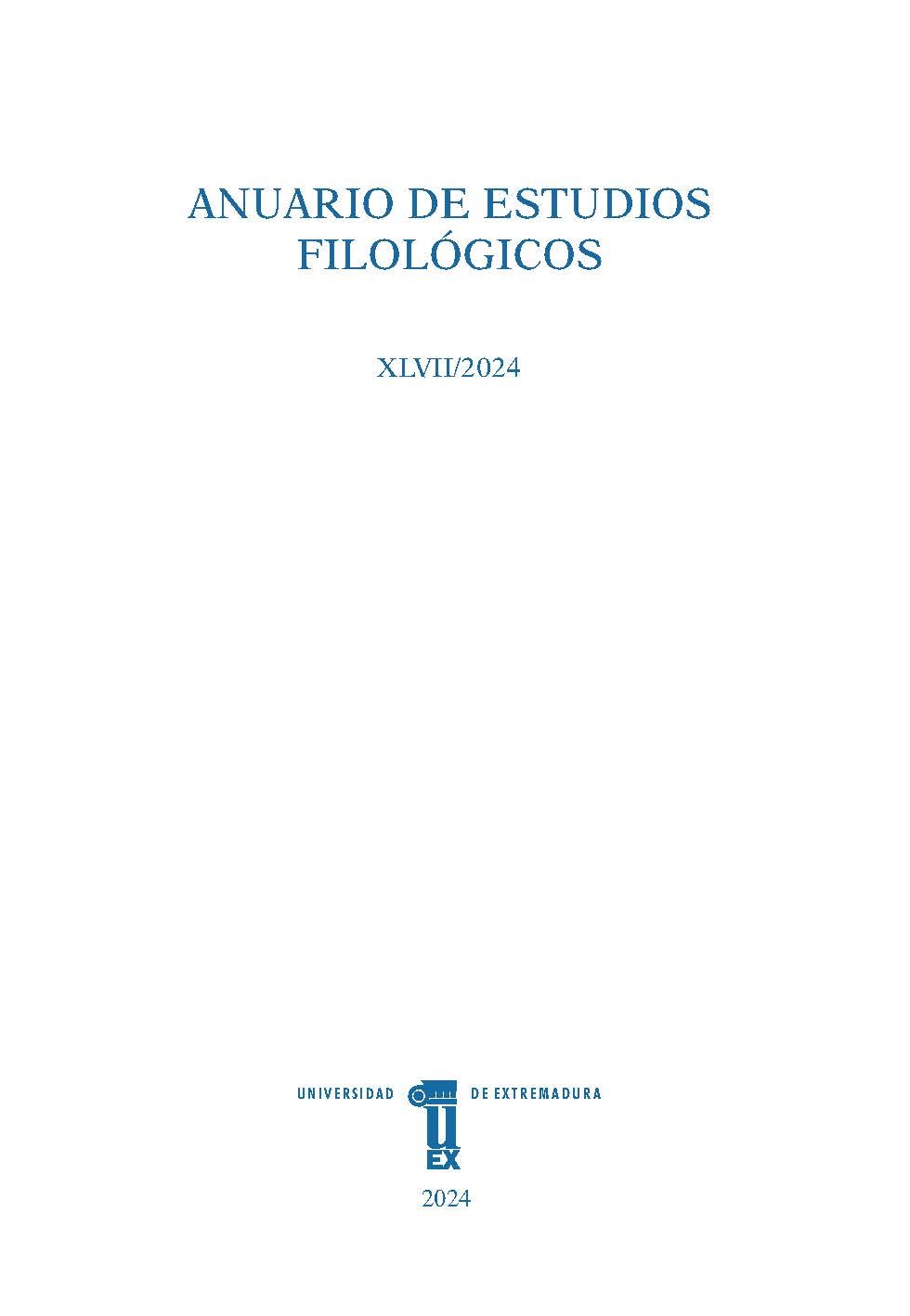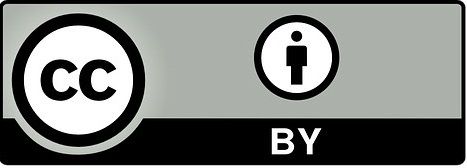When rhetorical questions receive answers: On different types of answers to rhetorical questions in US presidential debatesEE. UU.
DOI:
https://doi.org/10.17398/2660-7301.47.277Keywords:
rhetorial questions, answers to rhetorical questions, US presidential debates, political debates, addressors' answers, addressees' answersAbstract
The paper examines different types of answers to rhetorical questions and their communicative functions in two sets of US presidential debates: those held in 2016 and 2020 –which, due to the blunt and unconventional language of Donald Trump were much more heated and aggressive than the previous ones– and those held from 1996 to 2012. The results indicate that around one third of rhetorical questions in the examined corpora do receive answers, with addressors’ answers –those that explicitly confirm the implied answer, those that answer rhetorical questions as if they were not rhetorical, and, a less frequent type, sarcastic/ironic answers– being much more common than those provided by addressees –those that reject, and those that acknowledge the implied answer–. The results indicate that the main communicative functions of answers to rhetorical questions in US presidential debates are related to blaming, criticizing, or ridiculing the opponent or their actions, as well as making assertions or expressing disagreement. Statistically significant differences between the findings from the two corpora have been noted in regard to different types of answers to rhetorical questions, as well as their communicative functions.
Downloads
References
Austin, John, L. (1962): How to Do Things with Words. Oxford: OUP.
Badarneh, Muhammad A. (2009): «Exploring the Use of Rhetorical Questions in Editorial Discourse: A Case Study of Arabic Editorials». Text & Talk, 29.6, 639-659 (https://doi.org/10.1515/TEXT.2009.033).
Biezma, Maria & Rawlins, Kyle (2017): «Rhetorical Questions: Severing Asking from Questioning». In Burgdorf, Dan et al. (eds.): Proceedings of SALT 27. New York: Linguistic Society of America, 302-322 (https://doi.org/10.3765/salt.v27i0.4155).
Caponigro, Ivano & Sprouse, Jan (2007): «Rhetorical Questions as Questions». In Puig-Waldmüller, Estela (ed.): Proceedings of Sinn und Bedeutung, 11. Barcelona: UPF, 121-133 (https://doi.org/10.18148/sub/2007.v11i0.635).
Cerović, Marijana (2016): «When Suspects Ask Questions: Rhetorical Questions as a Challenging Device». Journal of Pragmatics, 105, 18-38 (https://doi.org/10.1016/j.pragma.2016.09.010).
El-Dakhs, Dina et al. (2019): «A Pragmatic Analysis of the Speech Act of Criticizing in University Teacher-Student Talk: The Case of English as a Lingua Franca». Pragmatics, 29.4, 493-520 (https://doi.org/10.1075/prag.18028.eld).
Frank, Jane (1990): «You Call that a Rhetorical Question? Forms and Functions of Rhetorical Questions in Conversation». Journal of Pragmatics, 14.5, 723-738 (https://doi.org/10.1016/0378-2166(90)90003-V).
Friedrichs, Jorg et al. (2022): «Fear-Anger Contests: Governmental and Populist Politics of Emotion». Online Social Network and Media, 32, 100240 (https://doi.org/10.1016/j.osnem.2022.100240).
Han, Chung-hye (2002): «Interpreting Interrogatives as Rhetorical Questions». Lingua, 112, 201-229 (https://doi.org/10.1016/S0024-3841(01)00044-4).
Hansson, Sten et al. (2022): «Discursive Strategies of Blaming: The Language of Judgement and Political Protest». Social Media + Society, 8.4, 1-14 (https://doi.org/10.1177/20563051221138753).
Hansson, Sten et al. (2023): « Strategies of Blaming on Social Media: An Experimental Study of Linguistic Framing and Retweetability». Communication Research (online first): 1-27 (https://doi.org/10.1177/00936502231211363).
Ilie, Cornelia (1994): What Else Can I Tell You? A Pragmatic Study of English Rhetorical Questions as Discursive and Argumentative Acts. Stockholm: Almqvist & Wiksell.
Ilie, Cornelia (1999): «Question-Response Argumentation in Talk Shows». Journal of Pragmatics, 31.8, 975-999 (https://doi.org/10.1016/S0378-2166(99)00056-9).
Kleinke, Sonja (2012): «Responses to Rhetorical Questions in English and German Internet Public News Groups». Functions of Language, 19.2, 174-200 (https://doi.org/10.1075/fol.19.2.02kle).
Kranish, Michael & Fisher, Marc (2016): Trump Revealed: The Definitive Biography of the 45th President. New York: Scribner.
Leggitt, John S. & Gibbs, Raymond W. (2000): «Emotional Reactions to Verbal Irony». Discourse Processes, 29.1, 1-24 (https://doi.org/10.1207/S15326950dp2901_1).
Levinson, Stephen C. (1980): «Speech Act Theory: The State of the Art». Language Teaching, 13.1-2, 5-24 (https://doi.org/10.1017/S0261444800008661).
Liu, Si (2004): Pragmatic Strategies and Power Relations in Disagreement: Chinese Culture in Higher Education. Boca Raton: Universal Publishers.
Marsili, Neri & Green, Mitchell (2021): «Assertion: A (Partly) Social Speech Act». Journal of Pragmatics, 181, 17-28 (https://doi.org/10.1016/j.pragma.2021.03.016).
Morgan, Nick (2005): Give Your Speech, Change the World: How to Move Your Audience to Action. Brighton Mass.: Harward Business Review.
Neitch, Jana & Niebuhr, Oliver (2022): «Research on Rhetorical Devices in German: The Use of Rhetorical Questions in Sales Presentations». Journal of Psycholinguistic Research, 51, 981-1000 (https://doi.org/10.1007/s10936-022-09874-8).
Oraby, Shereen et al. (2017): «Are You Serious? Rhetorical Questions and Sarcasm in Social Media Dialog». In Jokinen, Kristiina et al. (eds.): Proceedings of the 18th Annual SIGdial Meeting on Discourse and Dialogue. Saarbrücken: Association for Computational Linguistics, 310-319 (https://doi.org/10.18653/v1/W17-5537).
Popa-Wyatt, Mihaela (2017): «Compound Figures: Priority and Speech-Act Structure». Philosophical Studies, 174, 141-161 (https://doi.org/10.1007/s11098-016-0629-z).
Ranganath, Suhas et al. (2017): «Understanding and Identifying Rhetorical Questions in Social Media». ACM Transactions on Intelligent Systems and Technology, 9.1, 1-22 (https://doi.org/10.1145/3108364).
Rohde, Hannah (2006): «Rhetorical Questions as Redundant Interrogatives». San Diego Linguistics Papers, 2, 134-168 (on-line: <https://escholarship.org/uc/item/4xd7t5ww>, accessed: 20 September 2023).
Sadock, Jerrold, M. (1974): Toward a Linguistic Theory of Speech Acts. New York: Academic Press.
Sbisa, Marina (2023): Speech Acts and Other Topics in Pragmatics. Oxford: OUP.
Sclafani, Jennifer (2018): Talking Donald Trump: A Sociolinguistic Study of Style, Metadiscourse, and Political Identity. New York: Routledge.
Schaffer, Deborah (2005): «Can Rhetorical Questions Function as Retorts? Is the Pope Catholic?». Journal of Pragmatics, 37: 433-460 (https://doi.org/10.1016/j.pragma.2003.12.007).
Searle, John R. (1969): Speech Acts: An Essay in the Philosophy of Language. Cambridge: CUP.
Searle, John R. (1975): «Indirect Speech Acts». In Cole, Peter & Morgan, Jerry L. (eds.): Syntax and Semantics Volume 3: Speech Acts. New York: Academic Press, 59-82.
Searle, John R. (1979): Expression and Meaning: Studies in the Theory of Speech Acts. Cambridge: CUP.
Simion, Mona (2021): «Blame as Performance». Synthese, 199.3, 7595-7614 (https://doi.org/10.1007/s11229-021-03130-7).
Špago, Džemal (2023): «On the Use of Rhetorical Questions in Tweets Related to the Russia-Ukrainian War: Podolyak vs Polyanskiy». Discourse and Interaction, 16.2, 75-97 (https://doi.org/10.5817/DI2023-2-75).
Špago, Džemal et al. (2019): «Insults Speak Louder than Words: Donald Trump's Tweets through the Lens of the Speech Act of Insulting». Folia Linguistica et Litteraria, 27, 139-159 (https://doi.org/10.31902/fll.27.2019.9).
Van Rooy, Robert (2003): «Negative Polarity Items in Questions: Strength as Relevance». Journal of Semantics, 20, 239-273 (https://doi.org/10.1093/jos/20.3.239).
Witek, Maciej (2022): «An Austian Alternative to the Gricean Perspective on Meaning and Communication». Journal of Pragmatics, 201, 60-75 (https://doi.org/10.1016/j.pragma.2022.09.010).



